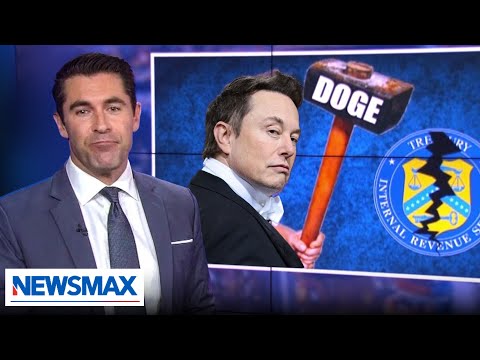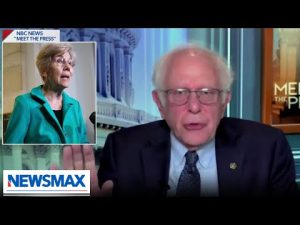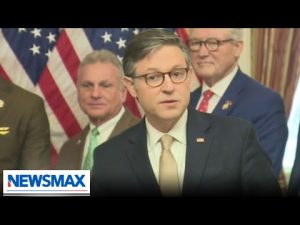The latest happenings at the IRS have sent shockwaves through Washington as the so-called Department of Government Efficiency rolls in like a whirlwind, shaking up the twisted bureaucratic realities that many Americans had never fully grasped. This young and enthusiastic group has been working diligently to uncover the staggering waste in federal spending, recently saving the American taxpayer a jaw-dropping $1 billion every day. In a time when taxpayers are struggling to keep up with rising costs and increasing taxes, the revelation of such an inefficiency comes as a breath of fresh air—though it might have some of our esteemed bureaucrats quaking in their boots.
In contrast to the fresh beginnings of government efficiency, the reaction from politicians has been nothing short of dramatic, providing a smorgasbord of entertainment for onlookers. Rather than embracing the opportunity to reduce waste or support efforts that could ultimately benefit citizens, some in the government have resorted to theatrics reminiscent of middle-school drama class—choir practices included. With chants such as “Federal workers matter” echoing through demonstrations, one can’t help but chuckle at the absurdity. Meanwhile, working-class Americans watch from the sidelines, wondering why their hard-earned tax dollars seem to fund displays like these instead of more practical solutions.
The spectacle has not gone unnoticed by taxpayers, many of whom harbor a healthy skepticism toward government spending—the very same spending that seems to fund bureaucratic bloat instead of public welfare. A staggering $7 trillion is spent each year by the federal government, yet the citizens who are footing the bill are left scratching their heads in disbelief. The strange irony here is that as the federal government finds itself in disarray, it continues urging citizens to “pay their fair share,” even as evidence suggests that much of that money will be squandered on questionable initiatives. Traditional taxpaying citizens find themselves doing mental gymnastics, attempting to reconcile their responsibility to pay taxes with the bewildering reality of how that money is used.
And while some Democrats might be raising their voices from behind their polished podiums, others—like moderate Democrat Dean Phillips—have begun to question the party’s all-out war on efficiency and transparency. In a rare moment of candor, Phillips points out the absurdity of their response to the IRS overhaul, suggesting that instead of attacking those shedding light on waste, the party could better serve its constituents by working with those who are pushing for reform. Ironically, it seems that Democrats may be missing out on a golden opportunity to engage with a populace increasingly unafraid to call out wasteful spending.
As the chaos unfolds, the ongoing struggle between those seeking to expose government inefficiency and those clinging to the status quo reveals a troubling truth: the situation may be dire for those in power who are not willing to adapt. With fears that their grip is slipping, certain factions find themselves resorting to hyperbole in an effort to regain ground lost to the winds of change. It’s as if citizens are witnessing a dramatic play unfold, where the characters on stage are trapped in their narratives, leaving audiences entertained but ultimately longing for real progress. In short, if the performance continues on this track, the only lasting impression it may leave is not for the boldness of their messages, but for the incongruity of their chaos.
In the end, Americans are left to ponder one simple question: will they see genuine reform that respects their hard-earned dollars, or will they continue watching politicians playing an endless game of theatrical charades at the expense of the taxpayers? It may take more than just more songs and chants to win back the trust of citizens—the time for real accountability is long overdue. With a new chapter beginning at the IRS, the hope remains that the spotlight on waste will ultimately empower taxpayers, leading the way to a government that not only listens but acts in the best interest of the people it serves.



